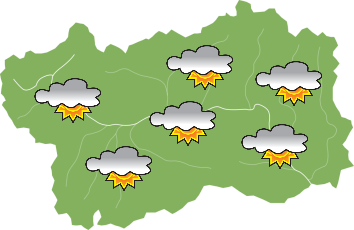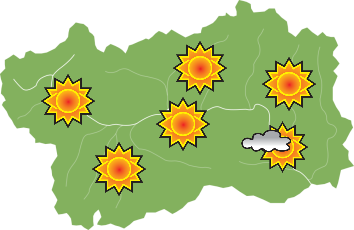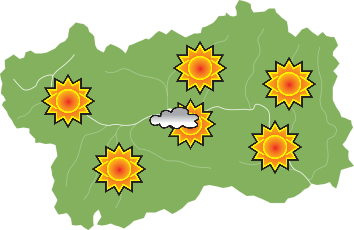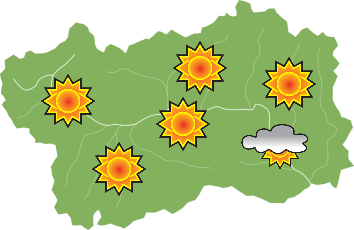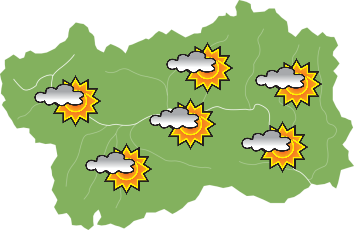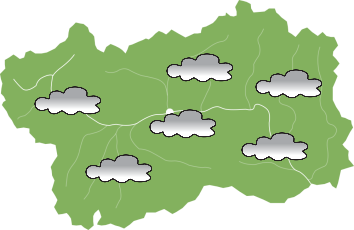Local History Museum Maison Bruil - Maison de l'alimentation
Resort: Introd
Reduced entrance-fee: children aged up to 13 years and disabled visitors
Free entry: children aged up to 6 years, holders of the Abbonamento Musei Aosta Valley, Piedmont and Lombardy
Reductions: Visitors of Parc Animalier Introd, Sarriod de La Tour Castle, Introd Castle and Maison Argentier food and wine customers
Fantasy Game formula (up to a maximum of 5 persons):
Game kit: Full: 6 € (to be shared among participants) + museum entrance ticket
Game kit: Reduced: 4 € (to be shared among participants) + museum entrance ticket
Book your visit here
buy your ticket here.
The site is accessible (equipped with stairlift and external ramp)
Accessible bathroom
Contact
Maison Bruil, located in the hamlet Ville Dessus of Introd is one of the best examples of rural Gran Paradiso architecture.
It is an ancient rural house with several concentrated functions: all spaces needed for survival of people and animals were grouped together under a single roof.
The current shape is the result of a complex architectural evolution that can be dated back to between 1680 and 1856, the period in which different wings of the building were joined to form a single body.
The visit unravels on three floors through the typical rooms of a traditional house, restored to their original function. The “crotta”, the natural glacier , the “crotteun”, the “peillo”, the drying areas and the garret are some of the areas open to the public wishing to deepen its knowledge of traditional architecture.
The exhibition: food preservation
Maison Bruil has become also a permanent food exhibition, a journey through oral testimony, recorded since 1980 in several communities of the Region. In the towns where the land lies fallow for many months, populations are only able to settle down when they dispose of food resources that last from one harvest to the next.
Altitude and latitude reduce food production times and as a consequence extend preservation times for the items needed. Tradition and experience taught the mountain dwellers numerous preservation techniques based on different physical and chemical principles: cold, salting, drying, smoking, cooking, isolation from air and light.
L’Atelier du Goût
Maison Bruil contains a special area reserved to local products: Atelier du Goût.
This is a showcase area where you can discover the territory and its products; presentations of products and tasting show the techniques and cultural context in which foodstuffs and wine are created.
Atelier du Goût provides an answer to the growing demand for food-related themes and quality agricultural products; this takes place in an atmosphere where the senses are used as an instrument of knowledge, with a direct approach to form, fragrances and flavours and with personal interaction with vine-dressers, diaries, farmers, the real protagonists of the products presented.
The mystery of the forest
A Fantasy Game style visit formula that involves adults and children in search of clues to decipher and puzzles to solve. Inside the rooms of the large Maison Bruil, between the stable, the cellars, the kitchen, the small dairy and the attic, visitors will have to face a fascinating challenge against time and solve the intricate mystery
Les Villes-Dessus Dairy
This building was built on land purchased from the inhabitants of the villages of Les Villes-Dessus and Norat. Each family contributed a share proportional to the number of cows owned. Built between 1913 and 1914, the dairy had a cellar for maturing cheeses and was equipped with a water turbine connected to the churn and fed by an ancient spring. A room intended for the village school
The dairy worked continuously until the mid-1980s. Appropriately renovated, the dairy has become a ludic and interactive center dedicated to discovering the traditional milk supply chain, designed in particular for school groups and young people accompanied by their families.
- The dairy can be visited on the occasion of special events or by reservation for groups.





